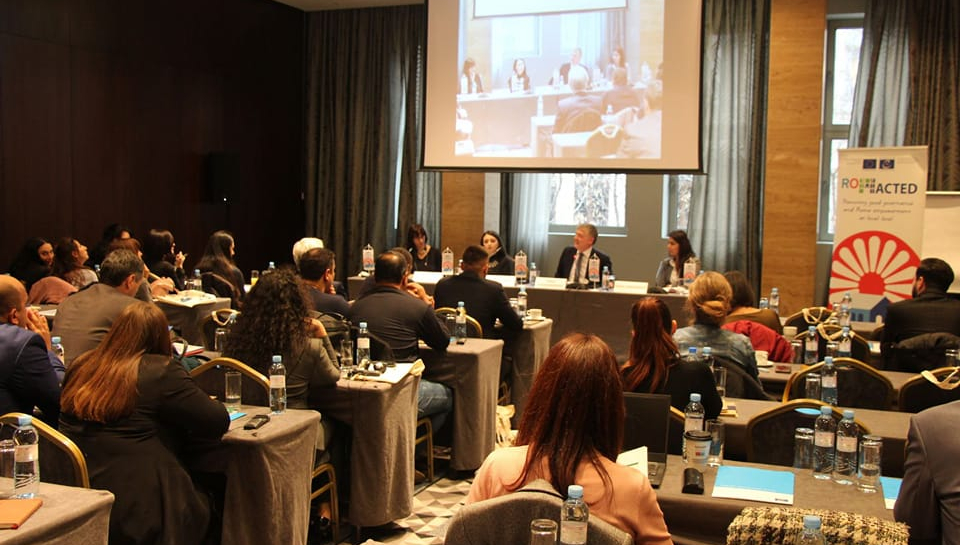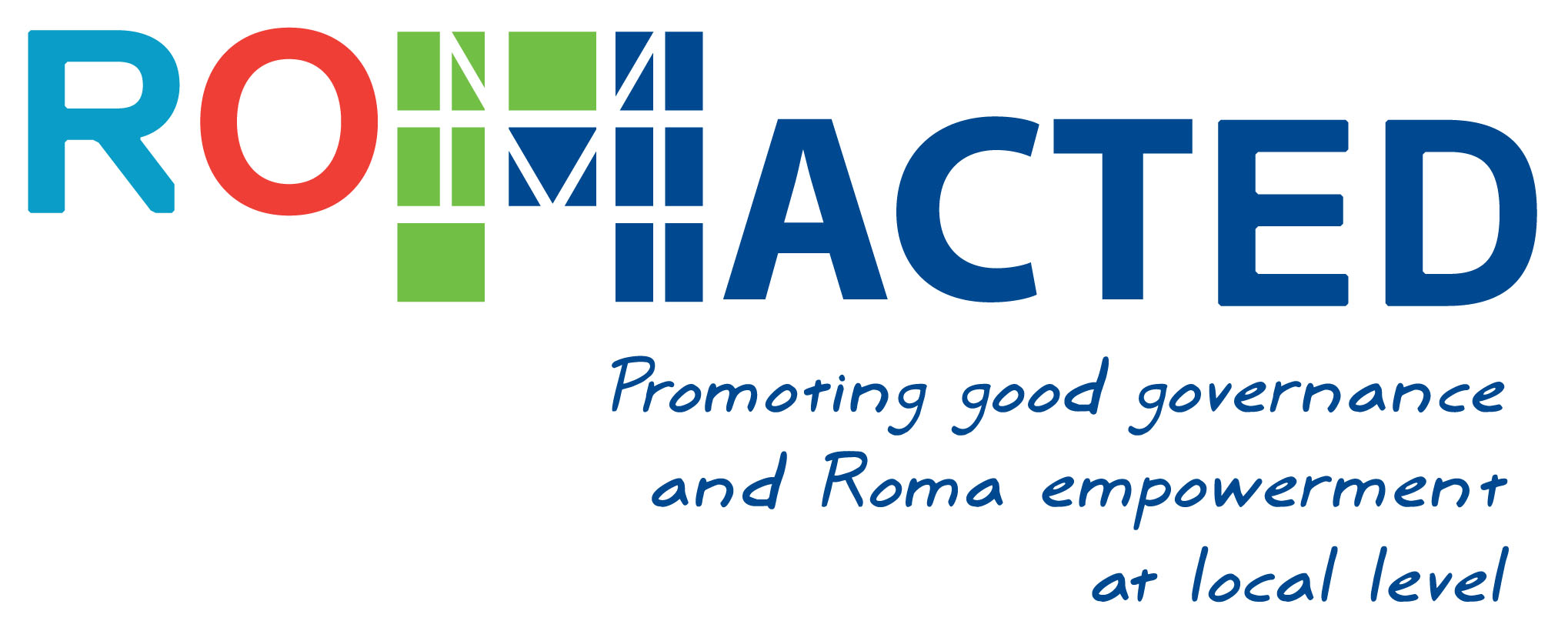45 representatives from the partner cities and municipalities in Serbia, Ministry of Human and Minority Rights and Social dialogue, European Union Delegation, European Roma Institute for Arts and Culture, Standing Conference of Towns and Municipalities, Roma Education Fund, GIZ, and other essential stakeholders gathered in Belgrade at the first Advisory Group meeting of the joint European Union and Council of Europe ROMACTED2 Programme to discuss the implementation of the Programme in Serbia during the previous year and to share information on the future and synergies. The opening panel was addressed and moderated by Mr Tobias FLESSENKEMPER, Head of Council of Europe Office in Belgrade.
The ROMACTED Team in Serbia took stock on the implementation progress, underlining the challenging work of the local facilitators in the past months, as well as constructive synergies with partners while ensuring internal and external coherence of the Action. Since September 2021, 39 Community Action Groups were established with 309 members of the Roma community, of which 152 are women, as well as 14 Institutional Working Groups. Out of 199 members in 14 Institutional Working Groups, 104 are women. Municipal Taskforce Groups with a total of 160 members were established in all local self-governments. Out of the total number, 62 are representatives of the Roma community (of which 29 are women), while local institutions are represented by 60 women and 37 men. As the Programme in Serbia is currently phasing into STEP 4 of ROMACTED methodology, the capacity-building has been provided for local administration for the preparation of small-scale projects, to be implemented in 2023.
Thematic consultant engaged for the development of Roma Responsive Budgeting at the local level has presented the draft of the Analysis Support mechanisms for social inclusion of Roma with special reference to allocation of funds for inclusion measures from local budgets developed on the findings and data collected from the representatives of 14 partner local self-governments but also on other relevant legislation and documents. During the fruitful discussion that followed, important insights and suggestions were collected and will be incorporated into the final version of the publication that will be published during 2023.
The last session was devoted to the presentation of the publication "Capacity assessment for providing support to returnees focused on Roma men and women in 14 local self-governments in Serbia" developed within the framework of Council of Europe Strategic Action Plan for Roma and Traveller Inclusion (2020-2025), in cooperation with the ROMACTED2 Programme. Furthermore, the key findings will pave the way for future work in the area of reintegration of returnees, especially in building synergies with relevant stakeholders, such as UNDP, World Bank and GIZ.
Furthermore, in the area of strategic co-operation and in line with the Strategic Action Plan for Roma and Traveller Inclusion (2020 - 2025), the Council of Europe joined efforts with European Institute of Arts and Culture, Roma Education Fund, Roma National Council and other prominent experts in drafting the proposal for the inclusion of Roma history and culture in the school curricula.
Check ROMACTED at a Glance in English and Serbian for full report on the Programme`s progress.


